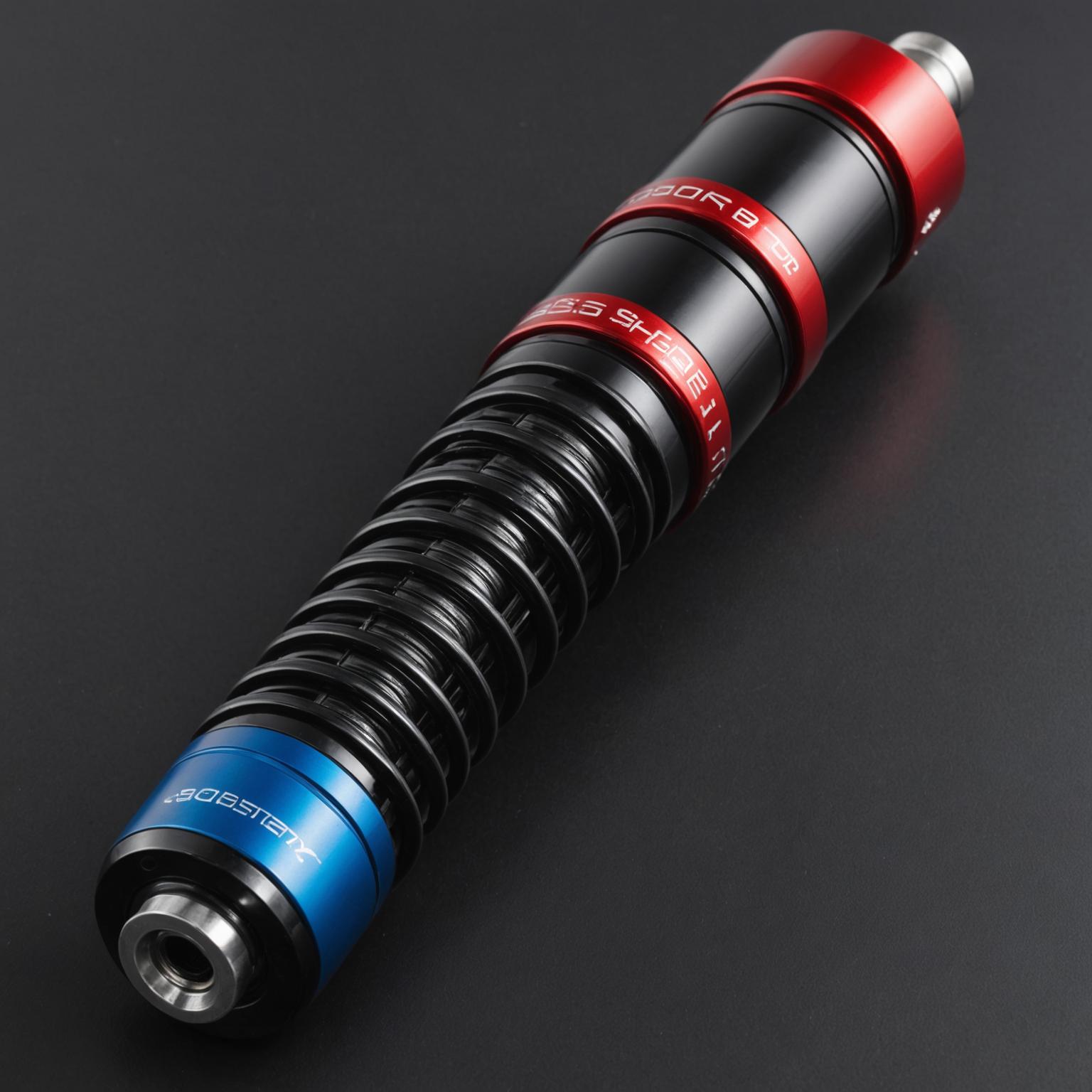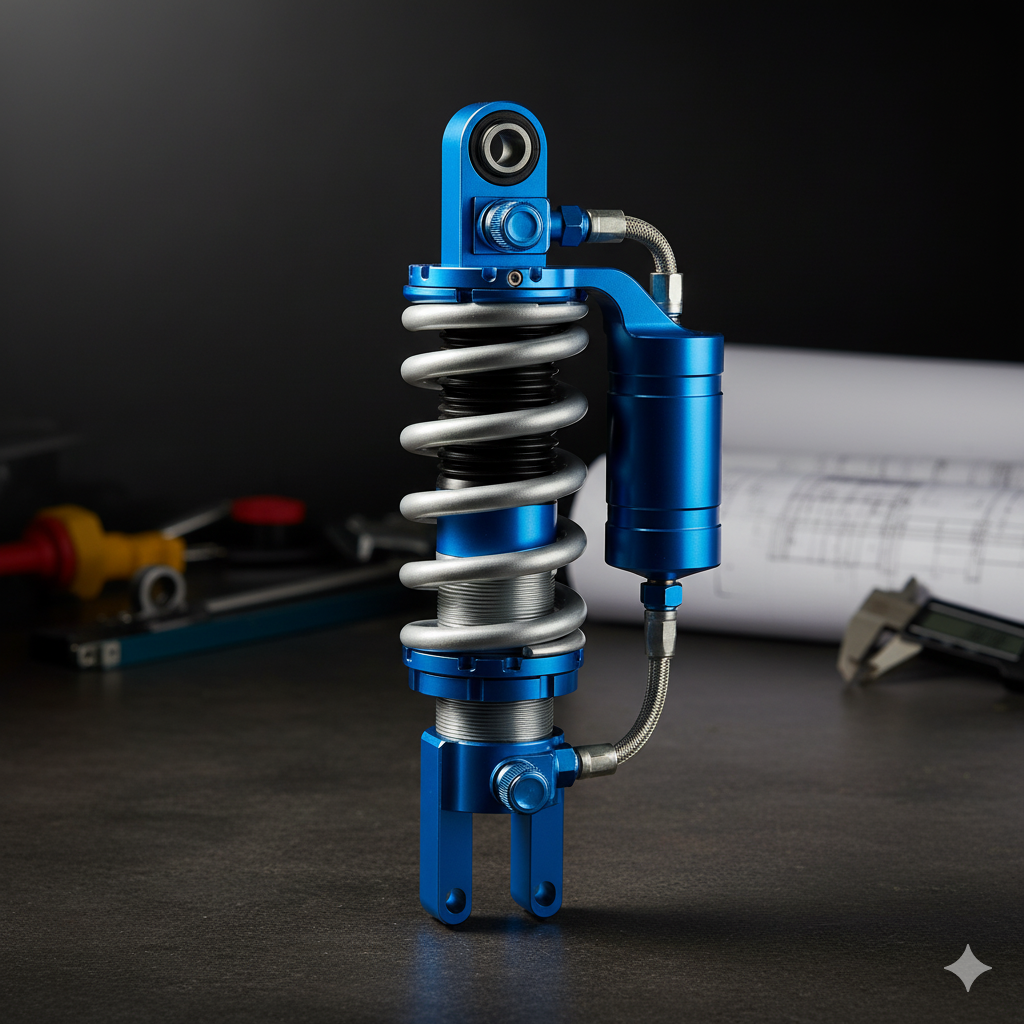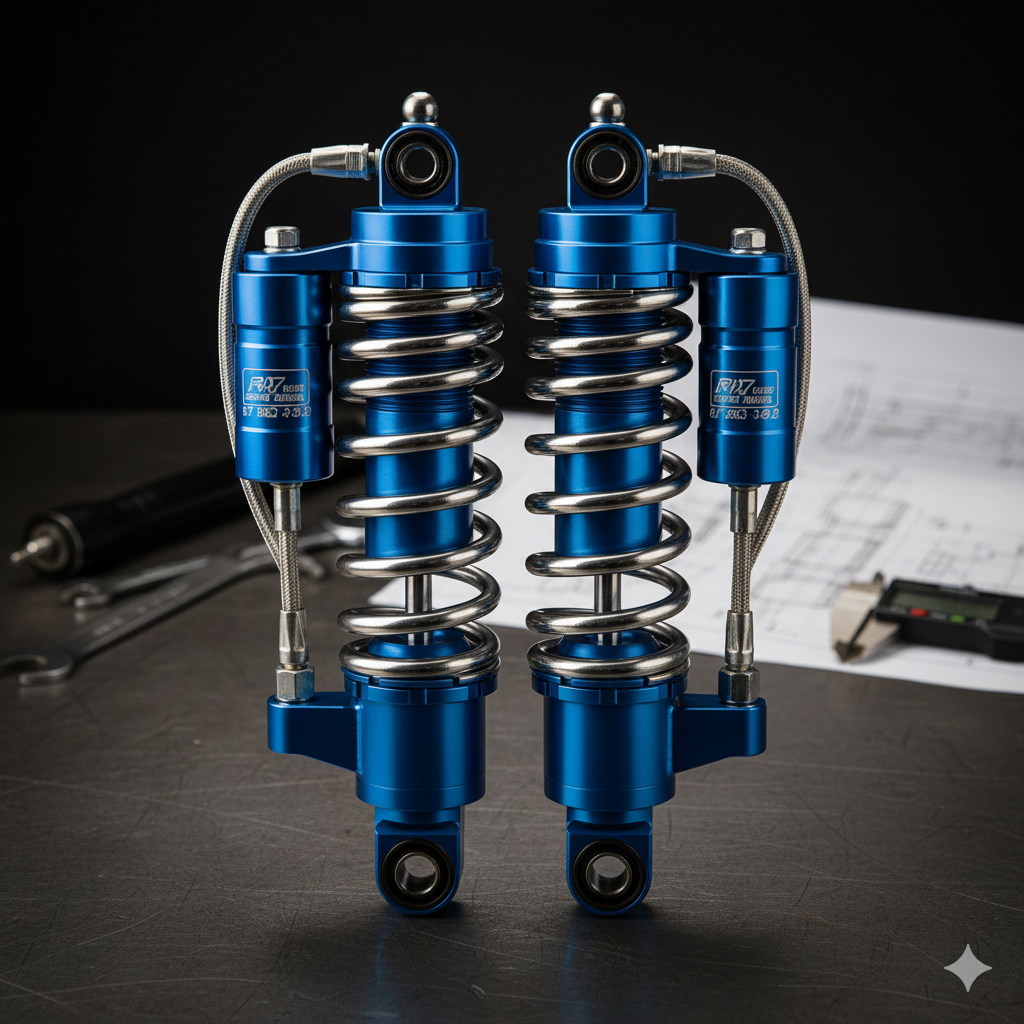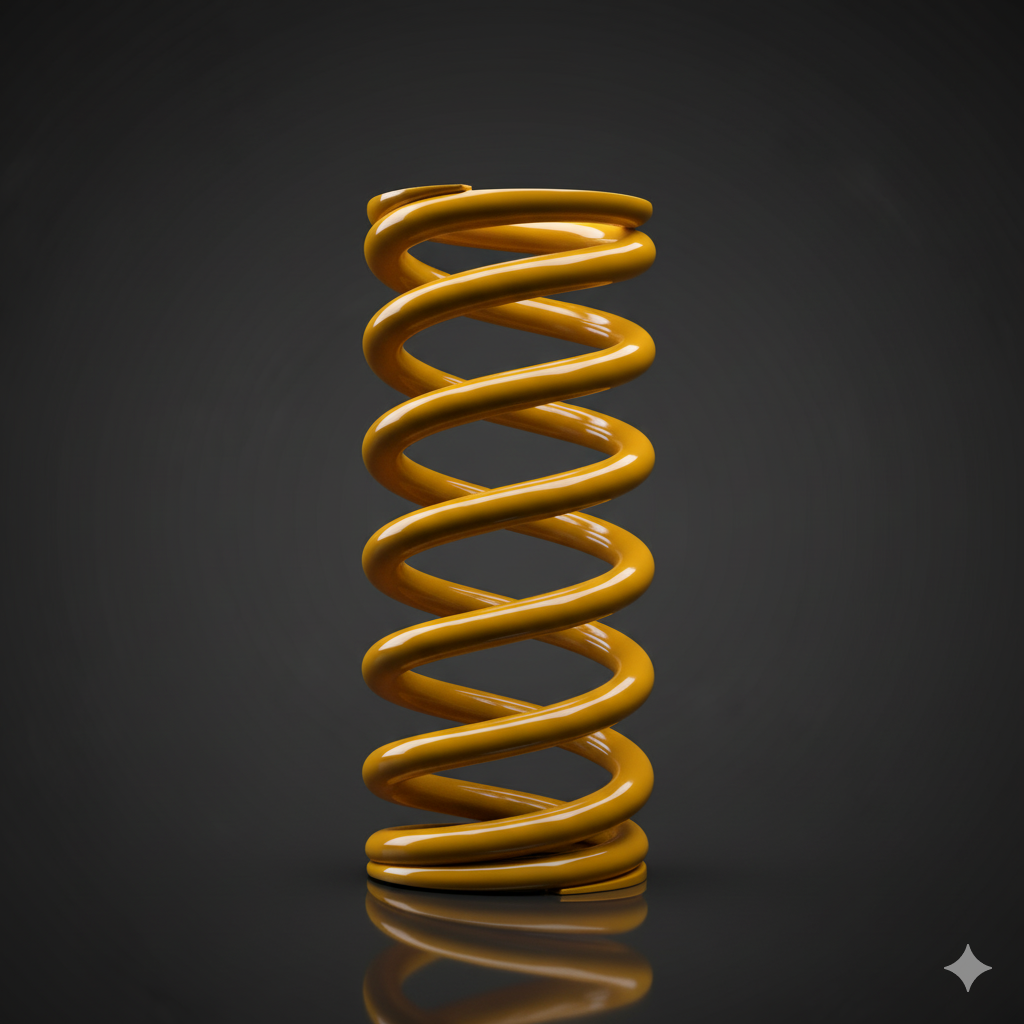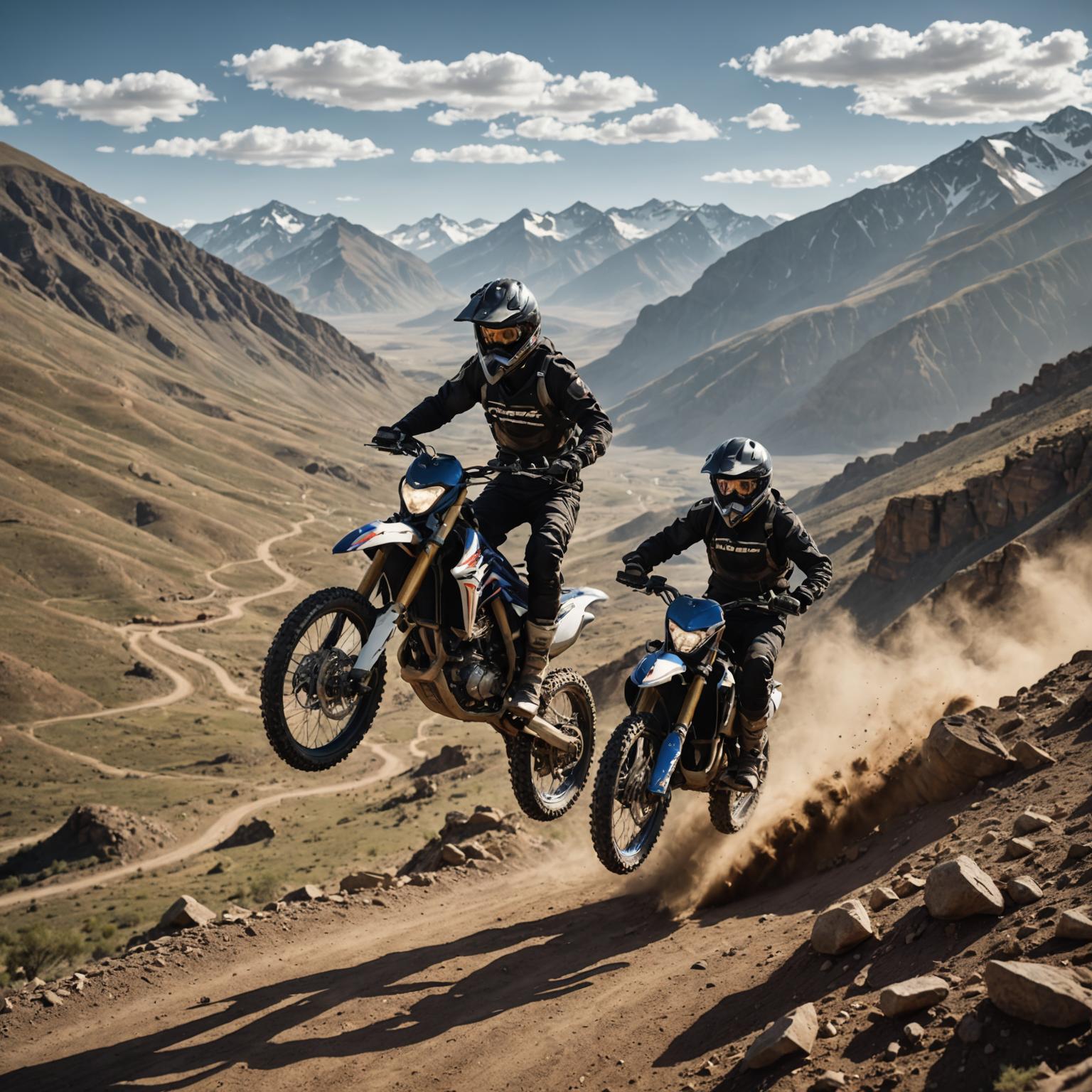
Motorcycle Shock Absorber Manufacturer: Solutions for Off-Road Adventures
The Challenge of Off-Road Suspension
Off-road motorcycles operate in extreme conditions—rocky paths, uneven slopes, mud, and sudden drops. These conditions put constant stress on the rear and front suspension systems. Riders expect precision handling and stable damping, yet most conventional absorbers lose effectiveness due to heat buildup, oil aeration, and seal wear.
Manufacturers and distributors face a similar challenge: how to design or source shock absorbers that maintain consistent damping and long service life without increasing cost or complexity. This is where advanced off-road suspension engineering becomes critical.
The Core Principle Behind Hydraulic Damping
At the heart of off-road stability lies the hydraulic damping system. A shock absorber converts kinetic energy from wheel movement into heat by pushing oil through internal valves.
High-quality off-road shock absorbers incorporate:
-
Multi-stage valve stacks that react differently to slow and fast compression.
-
Low-foaming hydraulic fluids to maintain pressure and temperature stability.
-
Precision coil springs to balance static load and rebound response.
-
Nitrogen-charged reservoirs to prevent cavitation during long endurance rides.
By controlling compression and rebound precisely, riders gain traction, and the motorcycle maintains balance even under unpredictable forces. This hydraulic precision defines the difference between a basic suspension and a professionally engineered one.
Standard vs. Off-Road Shock Absorbers
| Aspect | Standard Motorcycle Shocks | Off-Road Optimized Shocks |
|---|---|---|
| Oil Stability | Prone to foaming and heat fade | High-temp low-foam hydraulic fluid |
| Spring Design | Linear rate for smooth roads | Progressive coil spring for variable load |
| Piston & Rod Strength | Mild steel materials | Hardened alloy with anti-corrosion coating |
| Terrain Adaptability | Asphalt and city roads | Gravel, mud, sand, steep terrain |
| Maintenance Frequency | Frequent re-oiling | Extended intervals with dust-resistant seals |
This comparison highlights how engineering depth directly affects operational lifespan and ride stability—two metrics that define value in both OEM and aftermarket supply.
Applications Across Off-Road Markets
The demand for durable and adaptive suspension systems is rising in multiple vehicle segments:
-
Adventure Motorcycles: Require consistent damping for long-distance mixed terrains.
-
Motocross Bikes: Depend on rebound precision during high jumps and quick acceleration.
-
Utility and Cargo Motorcycles: Operate under high loads, demanding heavy-duty coil spring calibration.
-
Electric Motorcycles and ATVs: Need energy-efficient damping to reduce vibration from torque surges.
Each category requires different damping curves, preload settings, and material strength. Bedo’s R&D teams customize solutions according to these variables, ensuring every product matches its intended riding environment.
Engineering and Sourcing Recommendations
For manufacturers and distributors evaluating suppliers, three aspects determine a shock absorber’s real-world performance:
-
Consistency of Damping Curve – Products should maintain near-identical hydraulic resistance under repeated impact testing.
-
Surface Treatment and Seal Quality – Corrosion-resistant coatings and multi-lip seals extend lifespan under exposure to dust and water.
-
Adaptability in Design – Adjustable preload and rebound allow one base model to serve multiple markets, reducing SKU pressure.
Bedo, as a precision-oriented motorcycle shock absorber manufacturer, focuses on these principles. Its production integrates CNC-machined pistons, robotic welding, and 100% bench testing. This ensures OEM partners and aftermarket distributors receive products with predictable quality, certified endurance, and scalable output.
Real Buyer Questions Answered
Q1: Can Bedo customize damping for different terrains or models?
Yes. Our engineers use terrain simulation data to set specific rebound and compression rates, ensuring suitability for both racing and daily off-road use.
Q2: What testing ensures product reliability?
Every unit undergoes fatigue simulation, hydraulic leak testing, and corrosion resistance trials before packaging.
Q3: Do you offer private labeling or OEM production?
Absolutely. Bedo provides OEM development and white-label suspension production for brands targeting off-road and touring markets.
Q4: Can these shocks retrofit into existing motorcycles?
Yes. We design dimensionally compatible and performance-tuned retrofit units suitable for common models in Asia, Europe, and South America.
Beyond Suspension: Building Reliability for the Global Market
In the competitive motorcycle parts industry, reliability and consistency drive long-term partnerships. By integrating advanced hydraulic engineering, modular designs, and flexible OEM services, Bedo provides a foundation for brands and distributors to expand confidently into off-road markets.
Our mission is simple: enable every rider to experience stability and control, even on the roughest terrain.
Learn more about Bedo’s engineered suspension solutions on the homepage or contact our technical support team via the contact page.

